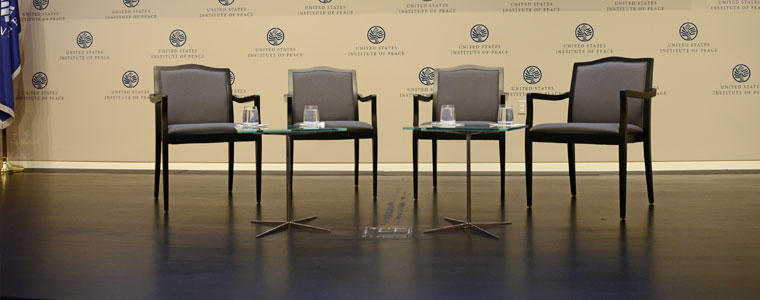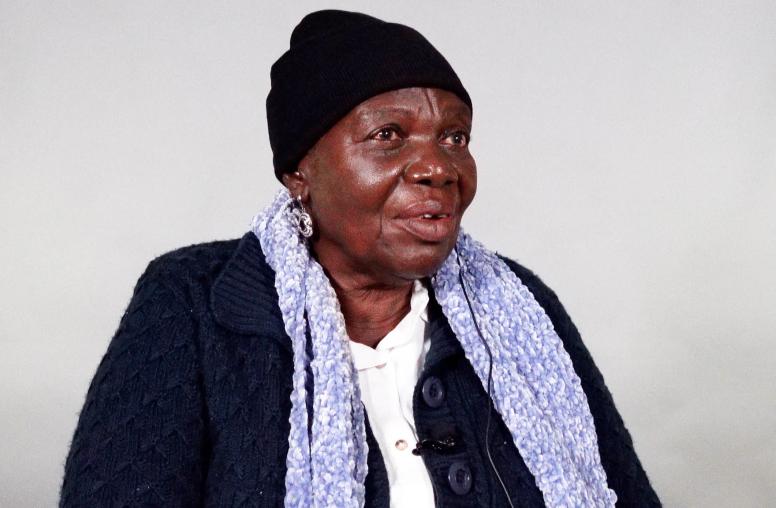Geneva II and the Limits of Diplomacy
On March 18, 2014, the U.S. Institute of Peace and National Coalition of Syrian Revolution and Opposition Forces (Etilaf) co-hosted a conversation to address the Syrian opposition’s perspectives on the Geneva process and the role of diplomacy in resolving the conflict.

After two rounds of meetings earlier this year, UN-sponsored talks between the Assad regime and the Syrian opposition ended without progress. Whether the Geneva II process will continue is highly uncertain, raising questions about prospects for a negotiated settlement of the Syrian conflict. Recently, Mr. Ahmad Jarba, President of the Syrian National Coalition, declared that the “time for diplomacy has passed.”
USIP held an on-the-record conversation about the Geneva II process and its aftermath, with two leading members of the National Coalition of Syrian Revolution and Opposition Forces (Etilaf) who were centrally involved in the Geneva talks. This timely conversation followed on the heels of a briefing to the UN Security Council (UNSC) by UN and Arab League Special Envoy to Syria, Lakhdar Brahimi, and immediately preceded a report to the UNSC from Secretary General Ban Ki-moon concerning the Assad regime’s compliance with UNSCR 2139, which called on all parties to end violence, cease violations of international humanitarian law, and honor obligations under international humanitarian law and international human rights law. Continue the conversation on Twitter with #USIPSyria.
Speakers
- Mr. Hadi al-Bahra
Secretary of the Political Committee of the Etilaf, Chief Negotiator for the Syrian opposition in Geneva, and an advisor to Syrian Coalition President Ahmad al-Jarba - Mr. Abdulahad Astepho
Member of Etilaf and representative of the Assyrian Democratic Organization, and a member of the opposition’s delegation to the Geneva II negotiations



